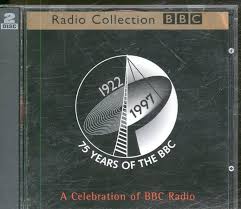
Introduction to the BBC
The British Broadcasting Corporation (BBC) is one of the most significant public service broadcasters in the world. Founded in 1922, the BBC has played a crucial role in providing impartial news and diverse programming that reflects UK culture and society. With its mission to inform, educate, and entertain, the BBC helps shape public discourse and provides reliable information to millions of viewers and listeners.
Current Role and Services
In recent years, the BBC has faced numerous challenges, including the rise of digital media, competition from streaming services, and issues surrounding funding and impartiality. Despite these challenges, the BBC remains a major player in the media landscape. In 2023, the BBC reported a monthly reach of over 500 million people worldwide, spanning television, radio, and online platforms.
The BBC continues to adapt to changing consumption patterns, launching new channels, and enhancing its online presence. BBC iPlayer, the corporation’s streaming service, has expanded its content library significantly, featuring original dramas, documentaries, and live broadcasts. This transition has attracted younger audiences, vital for the BBC’s future sustainability.
Impact on Public Discourse and Culture
The BBC is not merely a source of entertainment; it is integral to British cultural identity and public discourse. During critical events—such as elections, major national events, and crises like the COVID-19 pandemic—the BBC has provided comprehensive news coverage, making it a trusted source for factual information. This commitment to neutrality and thorough reporting is what distinguishes the BBC from commercial news outlets.
Moreover, the BBC has been pivotal in promoting British culture and the arts through programmes like ‘BBC Proms,’ showcasing classical music, and ‘BBC Radio 1,’ highlighting contemporary music. It also supports regional programming, which nurtures local talent and allows diverse voices to be heard across the UK.
Conclusion and Future Outlook
As the media landscape continues to evolve, the BBC faces the challenge of maintaining its relevance while adhering to its public service mandate. Discussions around its funding model, primarily through the television licence fee, are ongoing, and reforms may be necessary to ensure the corporation’s sustainability.
Looking ahead, the BBC’s commitment to impartiality, quality content, and audience engagement will be vital. As a cornerstone of British broadcasting, the BBC’s ability to adapt to new technologies and viewer preferences will determine its success in the years to come. Ultimately, the BBC’s significance remains profound, serving not only as a news provider but also as a cultural institution that can unite and inform the public in an increasingly fragmented media landscape.
You may also like

The Journey of Chris Mason: A Prominent Broadcaster in the UK

The Impact of Susanna Reid on British Television

The Enduring Legacy of Cliff Richard
SEARCH
LAST NEWS
- Remembering Wendy Richard: The Promise to Co-Star Natalie Cassidy
- How Did Anglian Water Achieve an ‘Essentials’ Rating for Mental Health Accessibility?
- Shai Hope Leads West Indies in T20 World Cup Clash Against South Africa
- What We Know About Weston McKennie: Future at Juventus and Past at Leeds
- What We Know About the Upcoming Live Nation Antitrust Trial